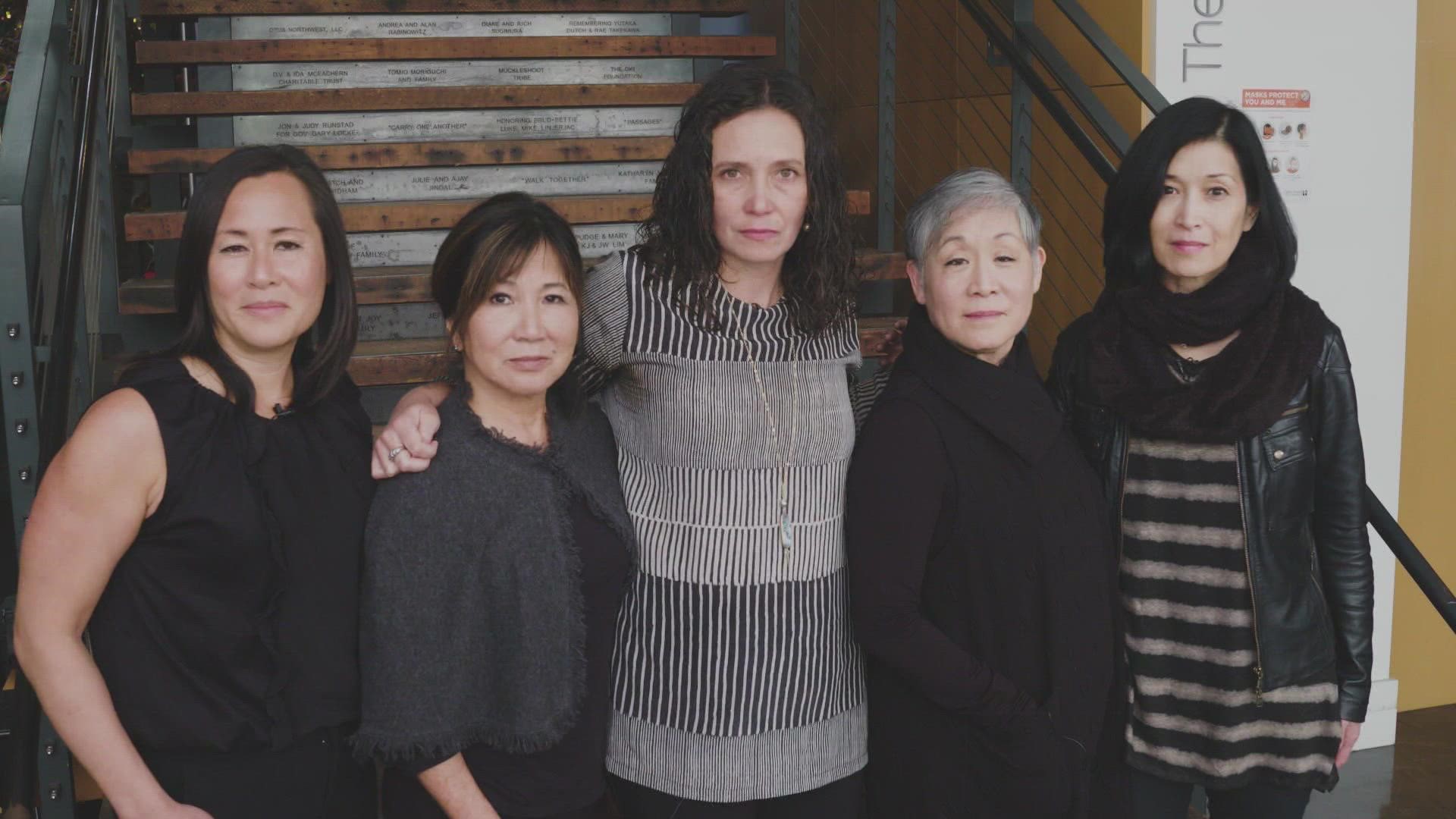SEATTLE — Since the start of the COVID-19 pandemic, thousands of Asian Americans have been the victims of verbal and physical attacks. The hate crimes are a painful reminder of the discrimination and xenophobia facing the Asian American community today.
"I think with all the anti-Asian hate that's happening and after the Atlanta killings, it made me realize that we are seen as other," said Mimi Gan. "I want people to see us as who we are and that our stories are your stories."
Gan and her four friends started a grassroots campaign called Our Stories are Your Stories (OSAYS), which highlights various stories within the Asian American, Native Hawaiian and Pacific Islander (AANHPI) communities. They started the campaign last March after the fatal shooting of six women of Asian descent during an attack on two- Atlanta-area spas.
"There was a lot of pain, a lot of anger and sadness," explained Mari Horita. "We didn't know what to do, but we felt like we had to do something."
Feeling anger and frustration, the women wanted to do something to change the stereotypes of Asian Americans.
"The sex worker one. For some reason, that one just made me so angry. Because they were sex workers, they weren't going to necessarily call it a hate crime," said Katherine Cheng. "You realize it's not because they don't see it as a hate crime, they don't see us as people who would be considered to have hate crimes against them because we are seen as invisible."
The OSAYS campaign highlights not only everyday people but also prominent politicians, athletes and community leaders to showcase the diversity within the AANHPI community. The goal is to change people's perceptions of what they think of someone who is Asian.
"There's 50 countries, there's five generations, there's a ton of languages and religions and cultural differences," said Horita.
Former Seahawk Doug Baldwin is one of the people featured in the campaign where he talked about his memories of cooking with his Filipina grandmother.
This year, as part of AANHPI Heritage month, Seattle artist Louie Gong shared his story of being Native, Chinese, French and Scottish and raised by his Native grandmother and his Chinese grandfather.
"I always thought it was unique that I was raised in a tribal community but ate Chinese food every day for dinner," said Gong. "When I think back upon the way that I grew up, it didn't seem complicated to me at all at that time. It was when I started to have to connect with other people around race and identity that I realized that the intersectionality that my upbringing represented was sometimes seen as so peculiar or different."
Talking about race and heritage hasn't always been easy for people in the AANHPI community. But the hope is speaking up about racial trauma and highlighting positive stories will bring empathy and compassion.
"There's a power in stories. There's a power in seeing that people have a lived experience that is different than you. But also lived experiences that are similar to you," said Betti Fujikado. "What we're trying to do with these videos is to bring a sense of humanity."
As anti-Asian violence and harassment continue to affect the AANHPI community, Gan hopes this project will change people's hearts and minds.
"I came up with Our Stories are Your Stories because I feel like our Asian American stories are unique, but they're also everyone else's story as well. We have so much more in common than we have differences," said Gan. "This is probably the most important project I've ever worked on."
All the stories will be preserved as part of the oral history archives at the Wing Luke Museum and people are encouraged to submit their own stories as part of OSAYS.
"I think it's important 50 years from now, for a researcher to understand what this moment in time was about and to hear it first-person from someone describing their history, their legacy and their current lived experience," said Fujikado.

